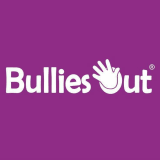This informal CPD article The Benefits of a Digital Detox was provided by BulliesOut, one of the UK’s most dedicated and ambitious anti-bullying charities.
Thanks to technology, at any hour of the day or night, we can tap into a steady stream of information and entertainment options, and while we are more connected and informed, many people are also struggling with high levels of stress, anxiety, and physical strain.
It’s no secret that many of us are glued to our mobile phones. Some might even say addicted! Social Media aside, we rely on these little electronic boxes for communication, our calendars, shopping, notes, directions, to read the news, to play games and so much more. For many people, being connected and immersed in the digital world is just a part of everyday life.
Smartphones and our other electronic devices are now so robust that it has become increasingly difficult for a person to do a ‘digital detox’ given how entrenched they are in so many aspects of our lives.
Yet the attraction of having created an entire world around our digital devices is not without some side effects. As a result of the technological overload, many adults report feeling tired, stressed, and unable to sleep. Children and young people are reported to spend an average of 6.5 hours looking at screens. Is this too much of a good thing?
Our phones are usually used for connection with Family, Friends, Health and Work and the countless phone notifications received from any one of these connections can often cause stress and wreak havoc on our well-being, so it is so important that we find ‘offline’ balance in this ever-growing online world.
While people often feel that they can't imagine life without their tech devices, research and surveys have found that technology use can also contribute to stress.
Research shows that constantly being tied to our phones for work, does not correlate with being more productive. Do you switch off after 8 hours of work or are you still responding to emails long after the working day is over? In his book ‘How to stay connected after disconnecting’, Blake Snow suggests we all try the ‘rule of thirds:
- Eight hours for work/study
- Eight hours free
- Eight hours of sleep
But how many of us actually abide by this?
Free time and rest are essential as they allow our minds to wander and then come back rejuvenated and recharged the next day. This is where phones get in the way. When our phones are always on, they hinder us from keeping our free time actually free because they never enable us to ‘switch off’ and disconnect. Therefore, we never allow our brains to have the full essential break it needs to be our most creative, productive self.
To Digitally Detox on a regular basis would be good for our mental well-being. But how many of us do this?
Some signs you might need a Digital Detox are:
- You feel stressed or anxious if you can’t find your phone
- You feel stressed or anxious if you’re in a place where you can’t use your phone
- You find yourself checking your phone every few minutes
- You often find yourself checking/using your phone first thing in the morning or late at night
- You feel depressed, anxious, or angry after spending time on social media
- You’re afraid you will miss something if you don’t constantly check your phone
- You are obsessed with the like, re-share or comments on your social media posts
- You check your phone even during a conversation or meal with someone
- You have trouble concentrating without having to check your phone
So, consider a Digital Detox – even if only for a few hours at a time. Rather than focussing and complaining about not having your phone, take some time to focus on all that you have. Developing an “attitude of gratitude” is one of the simplest ways to improve your satisfaction with life and to understand that although we can do so much with our phones, it’s not the end of the world to be without it every now and then.
We hope this article was helpful. For more information from BulliesOut, please visit their CPD Member Directory page. Alternatively please visit the CPD Industry Hubs for more CPD articles, courses and events relevant to your Continuing Professional Development requirements.













